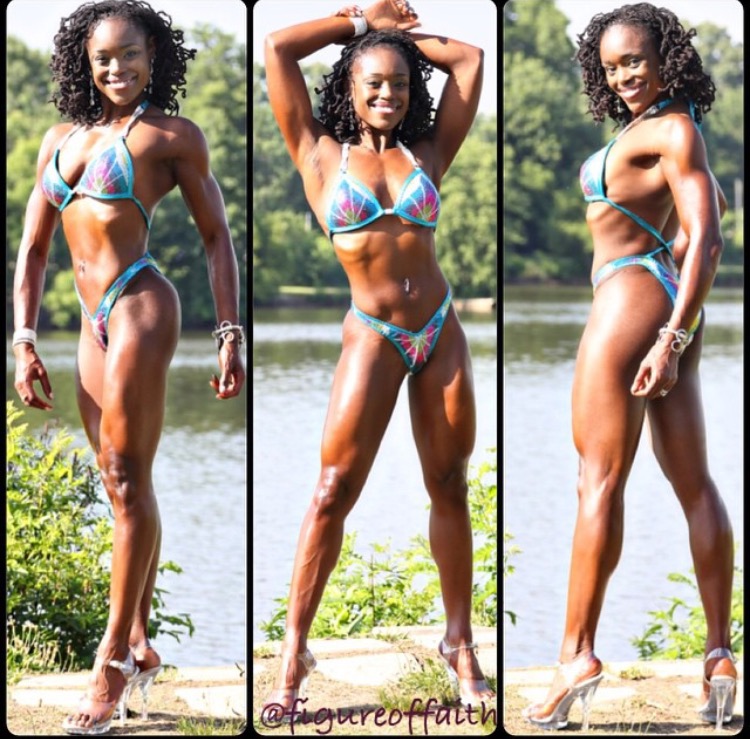
Overcoming the Diet Struggle – Interview with Bernai Holman
 Thanks so much for agreeing to this! I saw that you just finished a powerlifting competition, can you tell us how you did?
Thanks so much for agreeing to this! I saw that you just finished a powerlifting competition, can you tell us how you did?
I did my first WNPF (World Natural Powerlifting Federal) national meet on Sunday, September 6th. After four weeks of training specifically for this event, I ended up coming in first in my weight class and was awarded Best Lifter Award for my recognizable 350 pound deadlift. My total at the end of the meet was 710 pounds which qualified me for the World Meet which is scheduled for October 24th. I am currently the WNPF’s NJ record holder in my weight class for the bench, deadlift and total weight! I was extremely excited to see my hard work pay off.
You also compete in figure, right? How long have you been competing now? What inspired you to start?
About four years ago, my husband brought home a magazine with Alicia Harris (Ross) gracing the cover. Her chiseled body made my jaw drop and my heart yearned to take my fitness to the next level. At the time, I was working out but I guess you can say it wasn’t working! I just knew that my body and I were capable of so much more. I had to see how far I could possibly push myself and competing seemed like the perfect opportunity. I met a trainer, committed to a show, trained my butt off, committed wholeheartedly to eat extremely clean and competed. My first season ended with me finishing 2nd in my first show and 1st and overall in my second show. The next two seasons also added nice trophies to my shelf. I love the sport of bodybuilding and am looking forward to helping others prepare to grace the stage but I decided to switch to powerlifting and crossfit for the future.
On IG a few months ago, you described an epiphany that you had over becoming a more flexible dieter, vs a super-strict “clean eater/binger.” Can you tell us a little about your diet struggle, and how that change has affected you mentally, physically?
Eating clean is a good thing when balanced with nourishing fruits, vegetables and a treat here and there. Eating 100% clean, 100% of the time is not such a good thing. At least, for me, it wasn’t. When I competed, I was required to eliminate most of my favorite foods including, breads, pasta, chocolate chip cookies, fro yo, cheese…I could go on and on. I was limited to about 10 food options for weeks at a time and no I am not exaggerating! This was not bad coaching or anything like that. It was just a method used to get to my goals of competing in figure competitions. It actually worked and I ended up doing really well in my competitions, however what was being displayed on the outside was not depicting my true emotional, physical or mental health at the time. I was STRUGGLING! Anxiety was taking root and honestly, overtaking my life. The phases of low/no carb days would make my blood sugar so insanely low that I experienced fainting spells, foggy brain and even depression.
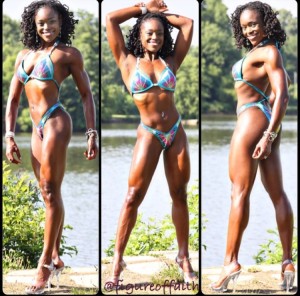 When I was finally able to eat, I ate EVERYTHING that I possibly could. This had negative effects on my already sensitive stomach and proved a hard habit to break once I entered my off-season. Last season, I did a lot of research on meal plans, metabolic rates and carb intake. I decided to follow a more flexible plan while still keeping track of macros. This helped me stay on track with my goals but still have energy to carry out daily activities. My focus really shifted to becoming healthier, developing sustained fitness, and getting stronger as these were the things I was encouraging my clients to do. Flexible dieting changed my life! I’ve learned that you need food to reach your goals and balance is key. In order to get stronger, you have to eat more. I don’t count marcos anymore because the many months of counting every single marco has made it easy to guesstimate how much I’m intaking. I do ensure to eat my carbs mostly in the morning, before and after my workouts as this is the time where my body can use them the most.
When I was finally able to eat, I ate EVERYTHING that I possibly could. This had negative effects on my already sensitive stomach and proved a hard habit to break once I entered my off-season. Last season, I did a lot of research on meal plans, metabolic rates and carb intake. I decided to follow a more flexible plan while still keeping track of macros. This helped me stay on track with my goals but still have energy to carry out daily activities. My focus really shifted to becoming healthier, developing sustained fitness, and getting stronger as these were the things I was encouraging my clients to do. Flexible dieting changed my life! I’ve learned that you need food to reach your goals and balance is key. In order to get stronger, you have to eat more. I don’t count marcos anymore because the many months of counting every single marco has made it easy to guesstimate how much I’m intaking. I do ensure to eat my carbs mostly in the morning, before and after my workouts as this is the time where my body can use them the most.
Did you gain weight when you increased your carb intake?
When I changed to a flexible diet, I did it very slowly after my last cutting season. I used a method called reverse dieting. This simply means that you take your current macros and add on to them over the course of a few weeks until your weight begins to change. By doing this for about a month or so, it allowed me to increase my carb intake to almost triple the amount that I was accustomed to during prep season without gaining more than a few pounds. My body did change slightly but that was a welcomed change.
Many women spend the better part of their lives dieting to achieve the fit, lean, muscular look that we see on fitness models and competitors like you. Can you explain to us the methods that you used to achieve your level of muscularity for the stage? Have you ever done specific “muscle-building/bulk” cycles, or were you always lean/muscular?
I have worked extremely hard to achieve the strength that I currently have. As a bonus, my body is shaped the way that I desire it to be. I was always very active with track, dance and outdoor activities so being overweight has never been a real struggle for me. However, through my experience of competing- I completely understand the struggle of dieting and having weight/image goals. Prepping for a competition usually takes about 16 weeks of working out about 3 hours, 6 days a week and eating 6 clean meals each day. When I competed, I did have bulking and shredding seasons.
Bulking is to gain size and muscle maturity to your physique. Although, it is considered to be a bulking season, in the beginning, I really struggled to build mass because one- it was SO hard and two- I was not comfortable looking too “fluffy” or far off from competition lean. After learning more about my body, I gained a better understand of the necessity of a bulking season and learned to enjoy it rather than to despise it. During my “bulking season” my carbs significantly increased, cardio was minimal and workouts include lower reps at higher weight. Once the prep season started my carb intake would change and I would try my best to maintain the strength that I gained during my “bulking phase” This was extremely hard with the lack of carbs and added cardio but with a committed spirit- I got it done! So can anyone else. It wasn’t easy but well worth it.
Can you describe the difference in your scale weight between off season and competition day? What about changes to your diet/workouts?
Competition day, I usually weigh about 115 pounds! Off season, I am most comfortable around 135 pounds. This fluctuates with what my goal at the time of my training. For my powerlifting meets, I am in the 132 pound weight class and general weigh in a few pounds lighter for security!
Remember, competition size is maintainable only for a short amount of time!
Do you think that it’s realistic for women to strive for a competition/fitness model look all year long?
NO! Take a breath of relief! You are probably closer to looking like a competitor in their off-season than you realize.
Most competitors and fitness models look stage ready between a short window of needing to be on stage or in front of a camera. Between the water manipulation (dehydration) and carb cycling (sometimes close to zero a few days before), it is impossible to maintain the amount of leanness that you see on magazine covers. Besides, for a female, being under about 12% body fat is UNHEALTHY. When you drop your body fat that low, your body is unable to properly produce hormones which can lead to all types of problems including insane cravings, poor eating habits, mood swings, depression, menstrual complications and so much more. Our bodies have a little extra fluff because we need it. A good body fat percentage is about 18-25% for healthy females.
 What would you say to the many women who want to look like a fitness cover model, and are eating 1200 cals, little to no carbs, and doing 2 hours of cardio/day to achieve it?
What would you say to the many women who want to look like a fitness cover model, and are eating 1200 cals, little to no carbs, and doing 2 hours of cardio/day to achieve it?
Friend, let go and love yourself! I had to learn how to do this again once my competitions were over. It is very easy to chase after the 6 pack while neglecting the needs of your body. Our body can live off of low calories but not live well. At 1200 calories you are most likely lacking a lot of nutrients that your body needs, eating away at your muscles and causing issues with your body’s natural functions. Consult with a professional to see what your daily caloric consumption should be.
Any parting words of advice or encouragement (to ladies who are struggling with the idea of fueling to lose, or waiting for the “perfect body” before enjoying life)?
A perfect body is one that healthy and appreciated. It is great to have physical goals but the first two should be – to love your body and to take care of it! You only get one body so I charge you to love it, cherish it, take care of it and appreciate it. When you look in the mirror, do not- for any reason- say anything negative about yourself. Rather, take the time to adore yourself, even your flaws! If you don’t love your body-it will be challenging for others to do love it. Change starts in the mind. If you love what you already have, it will make it easier to make changes in small steps. Change does not happen overnight, so in the meantime, enjoy the journey and celebrate the small successes.
How can our readers see more from/follow you?
FB: FigureofFaith or Business Page: Go Strong Fitness
IG: @figureoffaith or Business Page: @GoStrongFitness
Website: www.gostrongfitness.com (coming soon)

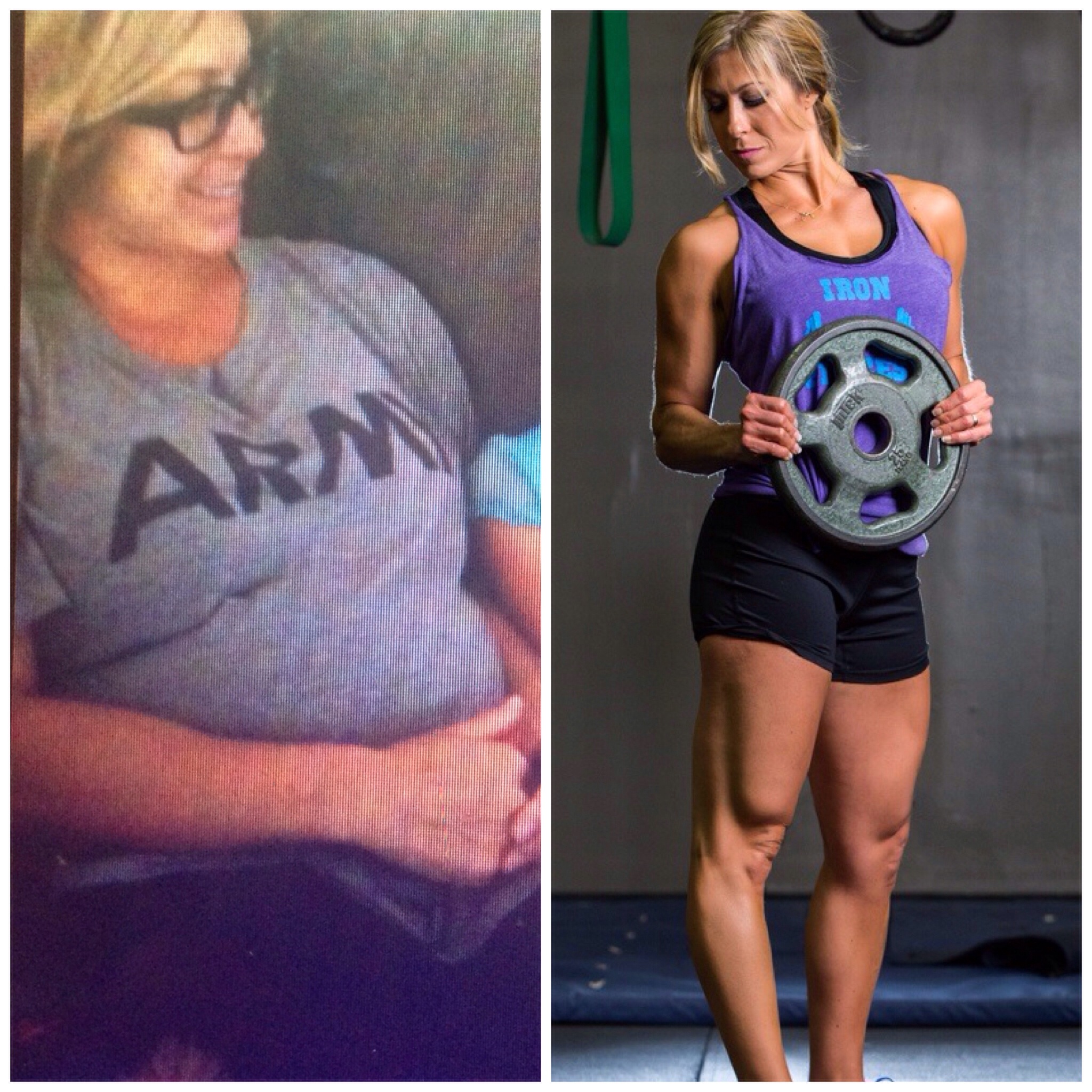
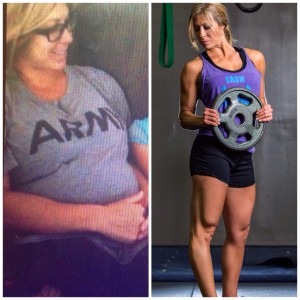
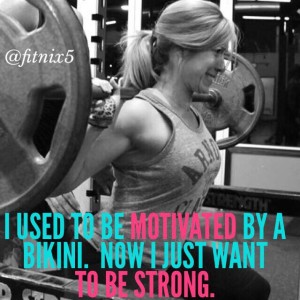
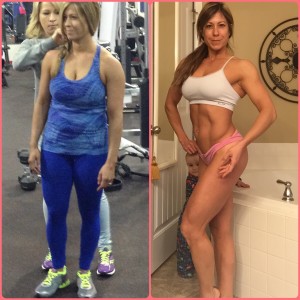

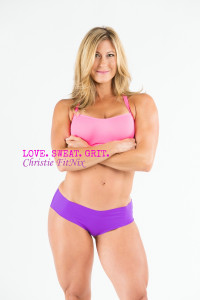

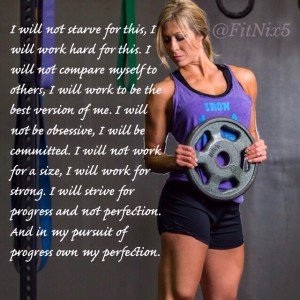
Recent Comments